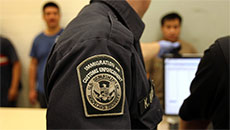Survivors of the Rana Plaza building collapse one year ago in Bangladesh are still suffering from their injuries and loss of income, Human Rights Watch said Wednesday.
International companies that sourced garments from five factories operating in the Rana Plaza building are not contributing enough to the financial trust fund set up to support survivors and the families of those who died, Human Rights Watch said.
According to the Bangladesh government, more than 1,100 people died and about 2,500 were rescued from the disaster when the building collapsed April 24, 2013.
The target for the fund, chaired by the International Labour Organization (ILO), is $40 million, but only $15 million has been raised so far.
On Tuesday, the government announced that victims would receive their first payments of $645 each from the fund.
Survivors and relatives told Human Rights Watch that they continue to suffer from life-changing injuries, psychological trauma and a loss of income.
Some said they were struggling to feed their families and send their children to school. Survivors also told Human Rights Watch of the poor working conditions in the factories prior to the collapse.
The eight-story building housed factories supplying garments to major brands in the US and Europe.
“One year after Rana Plaza collapsed, far too many victims and their families are at serious risk of destitution,” said Phil Robertson, deputy Asia director at Human Rights Watch.
“International garment brands should be helping the injured and the dependents of dead workers who manufactured their clothes.”
Of the $15 million raised for the fund so far, a single firm, Primark, has donated $8 million, according to the fund’s website.
Some companies that were not doing business with Rana Plaza have also contributed to the fund.
By contrast, 15 brands whose clothing and brand labels were found in the rubble of the factory by journalists and labour activists have not paid into the fund.
The fund will establish a systematic and transparent claims process so that all victims, their families, and dependents will receive the long-term support they need.





